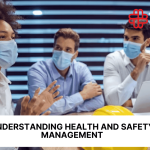Occupational health and safety standards are used internationally by organisations to ensure the safety and care of employees. It’s essential that all companies understand how to accurately carry out risk assessments, employ individuals who are sufficiently trained in first aid, and have strict policies and procedures for reporting and acting on accidents if they do occur.
As a business owner or health and safety manager, it’s important that you regularly assess your business premises and procedures to understand how accidents could occur and mitigate them. Recording and investigating past events can also give you insight into the causes of accidents and help to determine suitable resolutions.
Training all employees to recognise health and safety risks and understand their role within the business regarding health and safety can help the business maintain safe practices and respond quickly to any incidents or disasters.
Upon completion of this course, participants will be able to:
- Understand your role in the business when it comes to health and safety.
- Delegate tasks and assessments to individuals to ensure you get a full and accurate picture of your business.
- Develop a risk assessment process and regular audits.
- Deal with accidents and incidents appropriately if they do occur.
- Mitigate incidents using your risk assessment criteria.
- Prevent disasters and implement contingency plans where required.
- Train your staff to adhere to policies and procedures and gain buy-in.
- Understand the role of OSHA in aiding continuous improvement.
This course is designed for people with responsibilities in health and safety or any individual interested in learning more about their health and safety obligations as an employer. It would be most beneficial for:
- Business Owners
- Health & Safety Personnel
- Department Managers
- Directors
- Risk Assessors
- Auditors
- Business Premises Landlords
- First Aid Professionals
- Fire Wardens
This course utilises a wealth of adult learning styles to aid comprehension and understanding of good health and safety practices. Participants will view presentations to understand their obligations as employers, conduct practical risk assessments based on real-life case studies and enter into group discussions regarding pain points and solutions within their own business areas.
Each participant will return to employment with a clear view of changes and a framework for improvements to make the working environment safer for all employees.
Day 5 of each course is reserved for a Q&A session, which may occur off-site. For 10-day courses, this also applies to day 10
Section 1: What is OSHA?
- What does OSHA mean to you?
- Policies and procedures of health and safety management.
- Whose responsibility is health and safety?
- Creating safe systems at work.
- OSHA Inspections and preparation.
- The processes of safety management (OSHA 1910.119).
Section 2: Occupational Health Risk Assessments
- Understanding your high-risk areas.
- How to mitigate known risks.
- Get your employees involved.
- Managing procedural failure.
- Dealing with chemicals.
- Physical hazards.
- Health hazards.
- Hazard communication (OSHA 1910.1200)
- Pathogens and sanitation (OSHA 1910.1030 & 1910.141).
- Noise reduction (OSHA 1910.95)
- Health surveillance operations.
- HAZOP studies.
Section 3: Occupational Health and Your Employees
- Monitoring your employees’ safety.
- Display Screen Equipment Assessments.
- Equipment provision and testing.
- Dealing with employee hazards and disabilities.
- Occupational health review and results.
Section 4: Office Environments and Fire Hazards
- The Fire Triangle.
- Fire drills and equipment.
- Maintaining equipment and ensuring adequate access.
- Fire safety training and fire warden accountability.
- Removing fire hazards.
- Regular assessments, results, and feedback.
- Flammable liquids (OSHA 1910.106).
Section 5: Heights and Confined Spaces
- Manual handling.
- Working with scaffolding (OSHA 1926.450).
- Ladder and climbing assessments (OSHA 1910.23).
- Obtaining the correct work permits.
- Confined spaces and the required permits (OSHA 1910.146).
- Correct PPE and what it’s used for (OSHA 1910.132).
Section 6: Health & Safety Policies
- Policies and procedures review.
- Understanding the human element of health and safety.
- Employing health and safety representatives.
- A new process envelope.
- Developing understanding from employees.
- Emergency response - how to handle a disaster (OSHA 1910.119).
Section 7: Incident Recording & Monitoring
- Investigating incidents and recording results (OSHA 1910.199).
- Causes and future planning for mitigation.
- Implementing new procedures.
- monitoring adherence using process safety indicators ANSI/API RP 754.
Upon successful completion of this training course, delegates will be awarded a Holistique Training Certificate of Completion. For those who attend and complete the online training course, a Holistique Training e-Certificate will be provided.
Holistique Training Certificates are accredited by the British Assessment Council (BAC) and The CPD Certification Service (CPD), and are certified under ISO 9001, ISO 21001, and ISO 29993 standards.
CPD credits for this course are granted by our Certificates and will be reflected on the Holistique Training Certificate of Completion. In accordance with the standards of The CPD Certification Service, one CPD credit is awarded per hour of course attendance. A maximum of 50 CPD credits can be claimed for any single course we currently offer.
- Course Code PO2-103
- Course Format Classroom, Online,
- Duration 10 days














